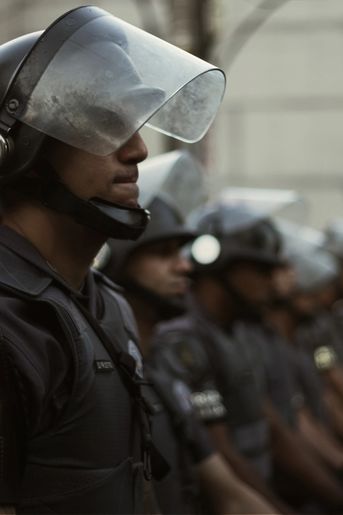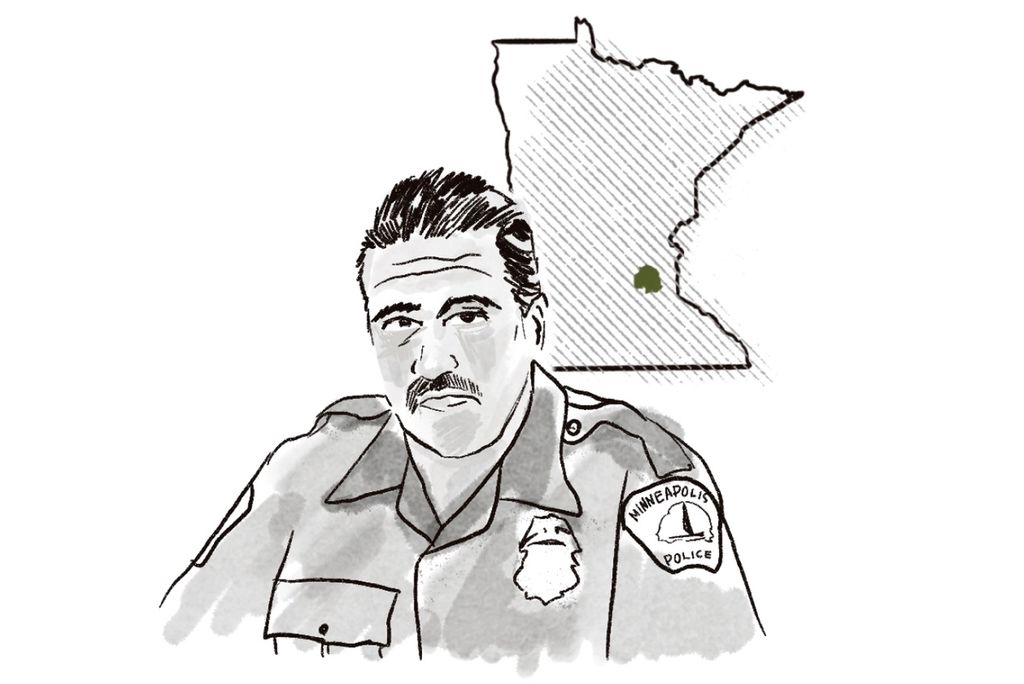Police Unions
In this section, you'll dive into the responsibilities of a police union and how they use money and aggressive contracts to shield cops that commit misconduct. You'll also learn some popular strategies for limiting the power of police unions.

UNIONS MAKE IT EASY FOR COPS STAY ABOVE THE LAW
A police union is a trade group that’s tasked with collective bargaining for its members (officers). They have a lot of influence over the rules that govern how police officers are held accountable and how they behave on the job.
Their responsibilities include:
- Negotiating better pay and working hours for their members
- Bargaining to protect the rights of officers
- Offering members benefits like counseling and life insurance
- Representing officers under investigation
While you don’t have direct influence over police unions you can indirectly limit their power. Before we get there, let’s examine some ways we’ve seen them rig the system.
Source: The BalanceFirst, let’s follow the money
Police unions and associations invest a lot of political financing in convincing politicians not to support bills that reform the police. It’s an issue for both sides of the aisle. Historically we've seen Democratic politicians frequently align themselves with labor unions and Republican candidates positioning themselves as tough on crime?
$47 million
In California, police unions and associates spent $2 million in 2017 to influence local legislation— nine times as much as the National Rifle Association (NRA) spent that year.
This can create a massive conflict of interest between candidates who receive funding and unions. Money buys short-term loyalty and enables police union leaders to also use their wallets to discourage legislators from making significant changes. They fight against reforms that range from requiring the use of body cameras to keeping officer disciplinary records buried. Learn more about this in our district attorneys lesson.
Next, we’ll review contract negotiations
Police contracts are one of the major ways unions wield authority. They negotiate powerful contracts that can override the decisions of a police chief. These contracts can provide unfair protections for police officers who intentionally commit crimes and make it really difficult to hold them legally accountable.
Some common ways police union contracts prevent accountability:
- Disqualifying misconduct complaints
- Restricting/delaying interrogations
- Limiting oversight and discipline
- Giving officers access to information civilians don’t have access to
- Requiring the general public to pay for misconduct
- Erasing misconduct records
Remember New York Mayor de Blasio? The Sergeants Benevolent Association in the area doxxed his daughter—after she got arrested for protesting brutality. Unions have a strong track record with these type of aggressive tactics. (Side note: doxxing means sharing someone’s information publicly on the internet with the intention making them a target for cyberattacks.)
In 2014, Officer Daniel Pantaleo killed Eric Garner with an illegal chokehold while arresting him for allegedly selling untaxed cigarettes. He was finally fired 4 years later. The union immediately appealed this decision and warned New Yorkers to prepare for an officer slow down in retaliation. Read our Right to Kill section that dives deeper into police union contracts.

A micro case study: Minneapolis union Leader Bob Kroll
Well-known union leader Bob Kroll (and ex-cop) is the head of the Police Officers’ Federation of Minneapolis. Here’s a quick look at his track record:
- He has a history of discriminatory attitudes and conduct, as alleged in a police department racism lawsuit
- He stands against policies that make officers accountable for intervening if a colleague is breaking use of force rules
- He is an advocate of aggressive policing
- He called Black Lives Matter a terrorist organization (he later walked that back)
- He is a member of a biker club that allegedly uses white supremacist symbols, according to colleagues
After George Floyd’s murder, Kroll sent out a “morale boosting” letter to his members. One of his points? Victim blaming Floyd. He also criticized Minneapolis politicians, denied that systemic racism exists in the Minneapolis police department, and promised to fight for the officers involved in Floyd’s death.
Sources: NACJD, CBS NewsHow activists are pushing for accountability with police unions
The tables are slowly turning. In the wake of protests and public opinion, police unions have lost public trust. This means there is more pressure on elected officials to take a harder line on budgets, sources of campaign funding, and policing regulations. Here are some policy-based solutions organizers and activists are pushing for reduce the power of a union:
- Ensuring an officer's disciplinary record is available to the public
- Making it a requirement for officers and police departments to take on the financial accountability of wrongfully killing and injuring civilians (the general public currently foots the bill)
- Eliminating the roadblocks to unbiased investigations of police misconduct
In addition to supporting any local policies that block their power, you can also prioritize voting for district attorneys and politicians who reject campaign donations from police union groups.
In conclusion, a more effective path union’s can take is focusing on not only offering benefits to its members but also instilling moral codes and accountability into the actions of police officers. Unfortunately, based on the actions displayed today in police brutality cases, it appears their primary approach seems to be dedicated toward defending officers--no matter the civilian cost
Sources: ProPublica, Mother Jones, Check the Police